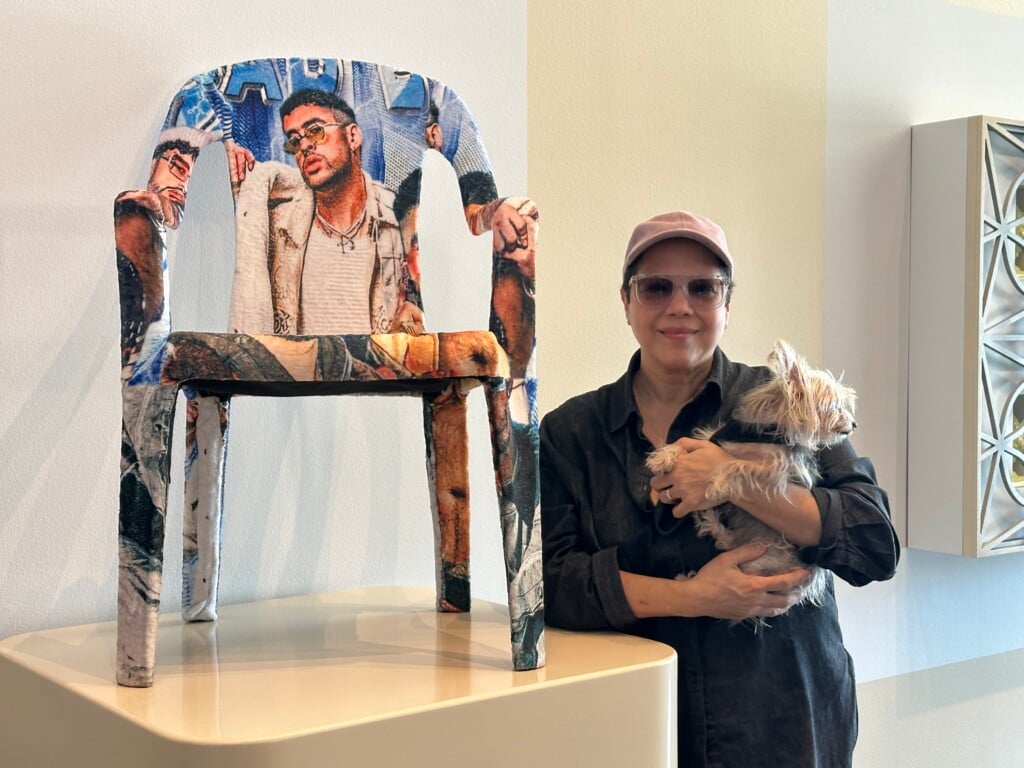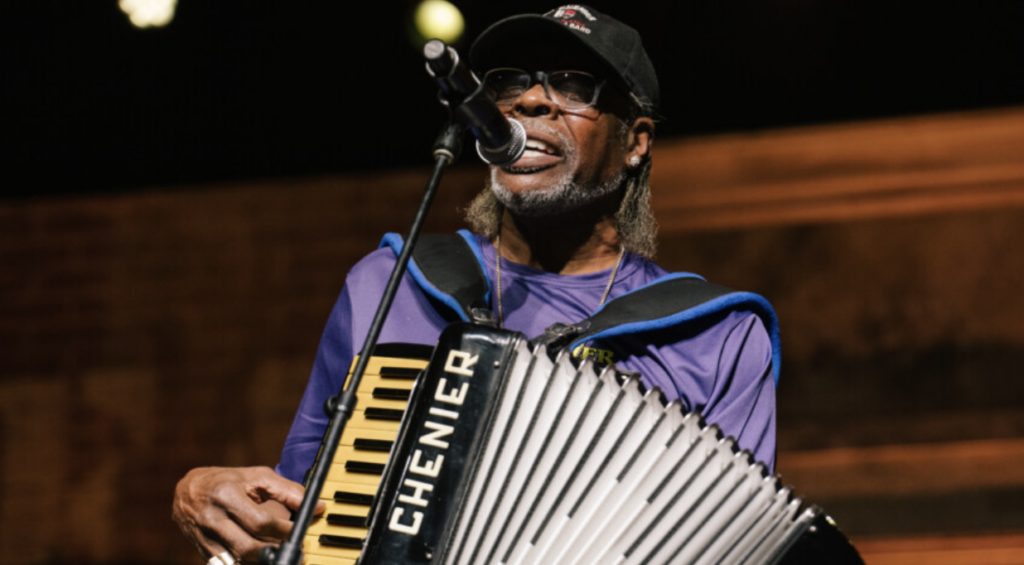Comeback a-Go-Go

It’s five days before St. Patrick’s Day, and Jane Wiedlin has green hair. This makes her easier to spot than fellow Go-Go Charlotte Caffey, who is dressed in black and exudes an appeal closer to soccer mom than girl-band guitarist. The pair are barnstorming Midwestern radio stations two months ahead of the first Go-Go’s album in seventeen years, due May 15. The other three — drummer Gina Schock, bass player Kathy Valentine and singer Belinda Carlisle — are hitting the coasts. The in-person publicity blitz is a good sign that Universal Music is eager to promote the new God Bless the Go-Go’s, an album that trades the coy, catchy flirtiness of the band’s classic Beauty and the Beat for mature, swaggering entitlement. Seventeen years ago, the disc would have sold itself without such greasy machinations on the strength of the single “Unforgiven,” which Caffey and Wiedlin wrote with Billie Joe Armstrong of Green Day. The Go-Go’s probably deserve better than having to wait in a hotel lobby to answer a few questions and fly off again to record “This is the Go-Go’s and you’re listening to WSUK, your No. 1 station!” blurbs, shepherded by an overeager twenty-something named Jason. Still, it’s a good sign for the renewed band that Caffey and Wiedlin are having a conversation, not sitting in acrimonious silence.
Actually, it’s hard to imagine silence of any length around Wiedlin, whose missing-Tilly-sister speaking voice, pointed commentary and fidgetiness make her the teenager to Caffey’s hip maternal figure. Unable to stop looking at the tape recorder, Wiedlin waits only a minute or so before grabbing it, finding a better place and new angle for it, and cheerily saying, “I want credit: engineering by Jane Wiedlin.” She’s what your grandmother might call “a pistol.”
“Is that the album?” Wiedlin asks, accepting the plain disc and inspecting it with Caffey. “It’s real!” Wiedlin confirms. It’s the first full-length copy of God Bless the Go-Go’s either has seen, and the affirmation of a year’s work genuinely pleases them.
“We started writing in September 1999,” Caffey says, explaining that it was only after a brief tour that the five women felt confident that they could make another album together. “We’ve been together steadily for two and a half years, but the public didn’t know.” During that time, the Go-Go’s received the only seal of approval that matters to artists over thirty these days, a Behind the Music episode on VH-1. The program didn’t soft-pedal the band’s hard-partying past or its intraband tumult. Caffey watched the show with her husband, not having seen the final product of six to ten hours of interviews.
“I watched it with a hundred of my closest friends,” Wiedlin says, laughing.
“Jesus,” Caffey says, “really? I wasn’t invited.”
“I got really drunk,” Wiedlin adds. “I was nervous, but it was good television. I brought old Go-Go’s T-shirts and made people do a dance or show their butts to win one. I sat by Exene Cervenka from X, and she was wise-cracking the whole time. It was fun.”
“We all knew from doing interviews in the past that things get taken out of context,” Caffey says. “The punk rock stuff was our favorite. The show really explained that we weren’t put together by some mastermind. We came together on our own, made our own fashion and our own sound.”
“Organically grown,” Wiedlin adds. “I voted against doing it. I worried it would open old wounds. I said at the beginning that if we did it, I was going to tell the truth. They interviewed me first, so it was shorter. By the time they got to the last person, they knew way too much,” she teases, raising a green eyebrow.
“I’ve come to accept that any great band has that tension,” Caffey says. “We wouldn’t be able to do what we do without that.”
“That’s your theory,” Wiedlin parries. Both women laugh. “I’d like to try without it for a week to see if we can create great music without the turbulence.”
Following the 1999 reunion, the Go-Go’s, turbulence notwithstanding, found new management. Reassured that their representation would push them forcefully back into the marketplace, the band members began writing and recording almost immediately. Wiedlin, who was working on a solo disc (Kissproof World, about which Wiedlin says dryly on her eponymous and math-impaired Web site, “I’ve sold 1,000 copies but had 23,000 hits. Does that mean each person had to come back three times to decide to buy it?”), offered her bandmates first crack at the new songs. They kept writing.
“Oh, I took it personally,” Wiedlin says, smiling. “I take everything personally. But I don’t hold grudges. It’s like, ‘Ooh, they think I suck!’ Then ten minutes later, I’m over it. It’s a pain in the ass doing solo records, though. I think my best songs are the ones I wrote with Charlotte.”
“We could probably make more money writing songs,” Caffey says. The pair just had their first number-one hit — “But for the Grace of God,” a country song performed by Keith Urban. Each is a Neil Finn fanatic, though Finn politely declined to write with them, saying he doesn’t co-author songs. It was another thing Wiedlin briefly took personally.
“You have to write four songs to get one good one,” Wiedlin says. “If you’re not willing to put in that work, don’t do it. I’m critical of our songs. When we did the second Go-Go’s album, we only had twelve songs. I would never do that now. I’d just say, ‘I’m sorry, we can’t make a record yet,’ no matter what the cost.”
“We’re competitive enough to make each other try harder,” Caffey says. “If you’re honest with each other, you write so much faster and more easily.”
The women agree that redemption is the theme of God Bless the Go-Go’s, something playfully spelled out by the artwork. Wiedlin suggested dressing as nuns for the photographs on the sleeve, naming each Go-Go after a virtue. Wiedlin is Sister Purity; Caffey is Modesty. The band’s reconfigured Web site carries the notion to funny extremes, such as offering a prayer for the Go-Go’s. Wiedlin presciently notes that it’s likely to seem unfunny to others; last week, a Catholic group slammed the design. But the album’s last song, “Daisy Chain,” belies the self-mocking tone, charting the group’s past: Flowers bloomed, faded too soon/What happened to our daisy chain? The song’s slow cadence and orchestral tint turn Wiedlin’s simple, regretful lyric into a Beatles “Free as a Bird” moment for the Go-Go’s, but it does not sink in syrup.
Despite offering such engaging moments, God Bless can’t be considered a surefire hit given the current pop climate. “We want this record to do well,” Caffey says after candidly admitting she doesn’t expect it to be commercially successful. “But four years ago, we weren’t even speaking. Having made the album was a huge hurdle. Now we have fun every day, and no matter what, this proves we’re not just a band of the ’80s.”




